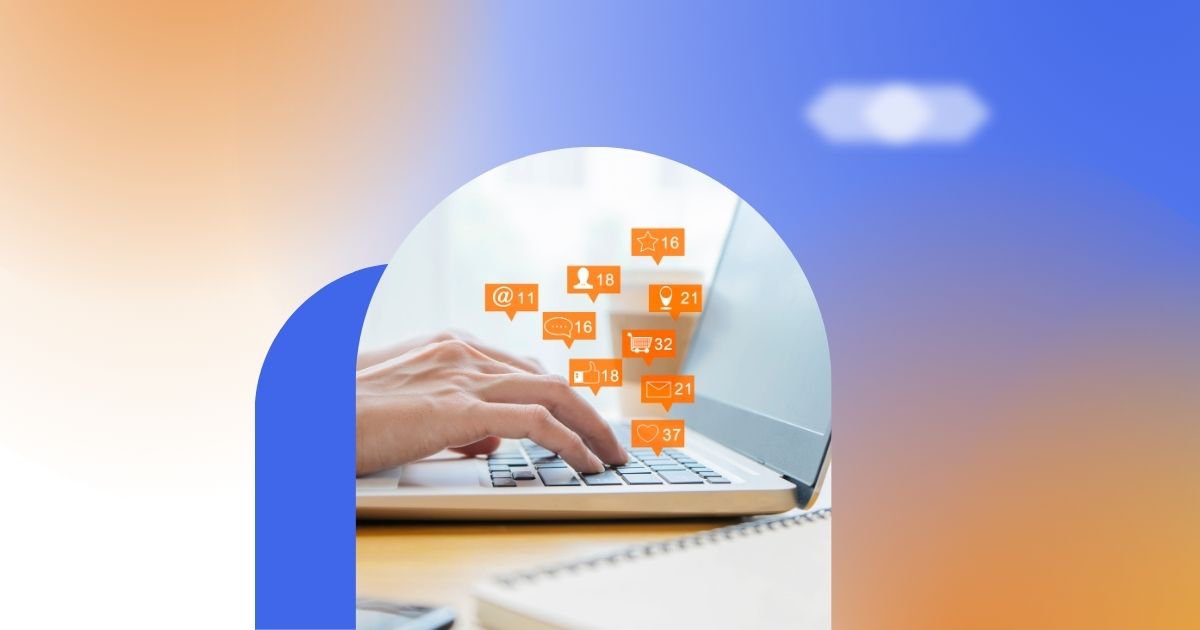Managing a small business often means balancing endless responsibilities, leaving little time to answer every call. An AI receptionist for small business, part of today’s modern virtual receptionist services — solves this by providing instant responses, scheduling appointments, and managing routine inquiries around the clock.
Let’s learn how AI receptionists lower costs, streamline operations, and enhance customer experience. Plus, we’ll also cover why Wing Assistant stands out as the best solution for blending automation with human support.
AI Receptionist vs. Traditional Receptionist: A Side-by-Side Comparison
| Aspect | Traditional Receptionist | AI Receptionist | Hybrid (AI + Human Backup) |
|---|---|---|---|
| Cost | $37,000–$45,000 annual salary (can exceed $50,000 with benefits, training, and overhead) | $65–$200/month depending on features and call volume | Lower costs than full-time staff, while still allowing human support when needed |
| Availability | Limited to business hours; subject to absences and turnover | 24/7 availability; never misses a call | 24/7 coverage with human backup for complex issues |
| Capacity | One call at a time | Unlimited simultaneous inquiries | AI handles routine calls; humans handle escalations |
| Reliability | Prone to human error, absences, and turnover | Consistent, scalable, error-free | Balances automation efficiency with human empathy |
| Features | Call handling, basic scheduling | Instant responses, automated routing, appointment booking, CRM syncing | Combines AI automation with live agent empathy and judgment |
What is an AI Receptionist?
An AI receptionist is a software that uses natural language processing (NLP) and machine learning algorithms to handle incoming calls, route inquiries, schedule appointments, and answer FAQs. It delivers automated phone answering that operates 24/7, ensuring no customer interaction is missed. Beyond answering calls, it can sync with CRMs, send reminders, and provide analytics on call patterns, helping businesses make data-driven decisions.
Traditional Receptionist vs AI Receptionist
A traditional receptionist provides valuable personal interaction but works within limited hours, handles only a set number of calls, and adds salary costs. An AI receptionist, by contrast, can manage hundreds of calls simultaneously, maintain consistent professionalism, and scale instantly as demand grows. It eliminates common issues like long hold times or unanswered calls, making it a cost-effective option for businesses handling high call volumes.
Hybrid Models
While AI excels at routine tasks, some interactions require empathy or contextual judgment. That’s why many providers now offer human + AI support. In these hybrid models, the AI filters and manages routine inquiries, while staff handle complex or sensitive issues escalated through an AI receptionist with human backup. This balance reduces overhead cost while ensuring customers receive the right level of service.
The global market for AI receptionist services was valued at $16 billion in 2022 and is projected to reach $55 billion by 2028. This reflects strong adoption across industries such as healthcare, law, and home services. As businesses strive to strike a balance between efficiency and the human touch, hybrid receptionist models are emerging as the preferred choice.
Why Small Businesses Need an AI Receptionist
Small businesses often miss opportunities juggling calls and clients, but an AI receptionist handles inquiries, speeds response times, and delivers professional service without added staff costs.
Common Pain Points
Here are the common struggles of SMBs when dealing with customers:
- Missed calls: Lost calls often mean lost revenue, especially when potential customers move on to competitors who answer first.
- High hiring costs: Employing a full-time receptionist adds salary, benefits, and training expenses that many small businesses can’t sustain.
- Limited availability: Human receptionists can’t cover evenings, weekends, or high call volumes, leaving gaps in service.
- Inconsistent follow-ups: Manual callbacks and scheduling often lead to delays or errors, frustrating customers.
- Administrative overload: Owners and staff spend time on low-value tasks instead of focusing on growth-driven activities.
Benefits
An AI receptionist for small business directly addresses these issues:
- Cost-efficiency: Reduces labor costs while maintaining high-quality service.
- 24/7 availability: Ensures customers are always answered, no matter the time.
- Scalability: Handles unlimited calls simultaneously, adapting to peak hours or seasonal surges without additional staff.
- Improved accuracy: Reduces scheduling errors and ensures all details are captured and logged correctly.
- Consistent service quality: Every customer receives the same professional greeting, tone, and support.
- Data insights: Call logs and analytics highlight customer behavior, peak times, and service demand.
AI receptionists act as virtual assistants for small businesses. Through CRM and calendar integrations, they provide customer support automation that strengthens consistency and customer satisfaction.
Key Features to Look for in an AI Receptionist
When evaluating an AI receptionist for small business, it’s important to focus on the core features that directly improve customer service, reduce workload, and maintain compliance. Below are the essential capabilities every business should expect.
1. Call Answering & Routing
At the heart of any solution is automated phone answering. The system should be able to pick up every call instantly, greet callers professionally, and route them to the right department or staff member. Advanced options deliver custom greetings, recognize caller intent, and generate real-time call logs, ensuring you never miss an opportunity.
2. Appointment Scheduling
A strong AI receptionist integrates directly with calendars to handle bookings, rescheduling, and reminders. This feature reduces no-shows, keeps schedules accurate, and eliminates the need for staff to manage back-and-forth scheduling. For industries like law, healthcare, or home services, automated scheduling directly translates into higher efficiency and improved customer experience.
3. HIPAA Compliance
For medical and dental practices, ensuring patient data security is non-negotiable. An AI receptionist should comply with HIPAA regulations, providing encrypted communication, secure data handling, and audit trails. This protects sensitive information while enabling practices to maintain regulatory compliance without additional administrative burden.
4. Multichannel Support
Customers expect more than just phone service. Modern tools must handle inquiries across multiple channels, including phone, chat, SMS, and email, to provide a unified experience. Multichannel support enables small businesses to meet customers where they are, while streamlining conversations into a single system for easier follow-up and reporting.
5. Integration with CRM Tools
An AI receptionist becomes far more powerful when it syncs with CRM platforms like Salesforce, HubSpot, or Zoho. This ensures caller details, appointments, and notes automatically flow into the system without manual entry. For small businesses, this level of integration reduces errors, improves lead tracking, and strengthens long-term customer relationships.
Hybrid solutions with human + AI support add flexibility. An AI receptionist with human backup automates routine inquiries and escalates complex or sensitive issues to staff. This balance delivers cost efficiency without sacrificing quality, making it a key differentiator when selecting the right platform.
How an AI Receptionist Helps Scale Your Business
Scaling a small business requires balancing growth with limited resources. An AI receptionist makes this easier by improving efficiency, customer experience, and cost control.

Focus on Growth
An AI receptionist manages routine tasks like call handling, scheduling, and FAQs, freeing up owners and staff to focus on sales, client work, and strategy. As a virtual assistant for small business, it ensures no inquiry is missed while giving leaders more time to drive expansion.
Customer Loyalty & Brand Perception
Through customer support automation, AI delivers instant responses, eliminates hold times, and ensures consistent communication across phone, chat, and email channels. Customers experience faster and more reliable service, which strengthens loyalty and improves brand perception, key drivers of repeat business and referrals.
Cost-Saving
Instead of hiring more staff as call volume grows, businesses gain scalable, round-the-clock capacity at a fraction of the cost. Many industries now rely on AI to answer business calls, capturing urgent inquiries without adding payroll expenses.
Smarter Scaling
AI receptionists also provide analytics from call logs and booking patterns. These insights reveal peak demand, common customer needs, and areas for process improvement, helping small businesses expand strategically without sacrificing quality.
AI Receptionist vs. Traditional Receptionist
Choosing between an AI receptionist and a traditional receptionist comes down to cost, efficiency, and reliability. Here’s how they compare, and why a hybrid model is often the strongest option.
Cost Comparison
A full-time receptionist in the U.S. earns an average annual salary of $37,000–$45,000, plus benefits, training, and overhead costs, which can increase the total cost to exceed $50,000 per year.
In contrast, AI receptionist services typically cost $65–$200 per month, depending on features and call volume. Even with premium plans, businesses save tens of thousands of dollars yearly by replacing or supplementing staff with AI.
Efficiency and Reliability Differences
Traditional receptionists can handle only one call at a time and are limited to standard business hours. Absences, turnover, and human error add further constraints.
An AI receptionist answers every call instantly, operates 24/7, and scales to handle unlimited inquiries simultaneously. Features like automated call routing, appointment booking, and CRM syncing make it far more consistent and efficient.
AI Receptionist with Human Backup
While pure AI delivers speed and coverage, some calls still require empathy or nuanced judgment. A hybrid model, an AI receptionist with human backup, offers the best of both worlds.
Routine tasks are automated, while complex or sensitive conversations escalate to a live agent. This approach maximizes cost savings and efficiency without sacrificing the human touch that customers expect.
Why Choose Wing Assistant for Your Small Business
Wing Assistant’s Central Voice AI Receptionist ensures small businesses never miss an opportunity. Unlike standalone AI tools or costly full-time receptionists, Wing combines automated efficiency with human oversight for complex cases. This balance delivers round-the-clock coverage, consistent service, and the flexibility to grow with your business.
Key Features Built for SMBs
Wing’s Central Voice AI Receptionist handles critical front-desk tasks while keeping costs predictable. Core features include:
- Call answering & routing: Every call is captured, with caller details logged and routed instantly.
- Appointment scheduling: Central checks calendars, matches availability, and books meetings automatically, reducing no-shows with reminders.
- Medical intake & compliance: Practices like dental and healthcare clinics rely on Central to capture patient information securely, aligning with industry standards.
- Automated lead capture: Central identifies names, phone numbers, and intent, syncing data to your CRM via Zapier or direct integrations.
- Scalability: Plans range from 90 to 400 calls per month, supporting growing businesses without the overhead of new hires.
- Multi-channel support: Voice, SMS, and integrations with over 6,000 apps (Zapier, HubSpot, Zendesk, Calendly, Pipedrive) ensure seamless customer support automation.
- Human escalation: If a request requires empathy or specialized input, calls are transferred smoothly to your team.
Frequently Asked Questions
How much does an AI receptionist cost?
- Most services range from $65 to $200 per month, depending on call volume and features. This is far less than the annual cost of a full-time receptionist.
Can an AI receptionist handle complex calls?
- Yes. Routine inquiries are automated, while more complex or sensitive issues can be escalated to a human team member through human + AI support.
Is the setup complicated?
- No. Most platforms, including Wing Assistant, can be set up in minutes by training the system with your website, FAQs, and call preferences.
Efficiency, Savings, & Growth with AI Receptionists
An AI receptionist for small business eliminates missed calls, reduces overhead, and ensures every customer gets fast, consistent service. With features like 24/7 availability, appointment scheduling, CRM integration, and scalable call handling, it helps businesses operate more efficiently while improving customer satisfaction.
Adopting this technology is more than just saving time. It’s a step toward sustainable growth and scaling without the burden of extra staff. Small businesses that embrace AI receptionists position themselves to compete effectively while maintaining the personal touch customers expect.
Now is the time to evaluate your options. Start by exploring Wing’s services orschedule a free consultation to see how Wing Assistant can help your business stay responsive, reduce costs, and grow smarter.

Dianne has extensive experience as a Content Writer, she creates engaging content that captivates readers and ranks well online. She stays on top of industry trends to keep her work fresh and impactful. She has a talent for turning complex ideas into relatable stories. When she’s not writing, you’ll probably find her with a crochet hook in hand or working on a fun craft project. She loves bringing creativity to life, whether it’s through words or handmade creations.






